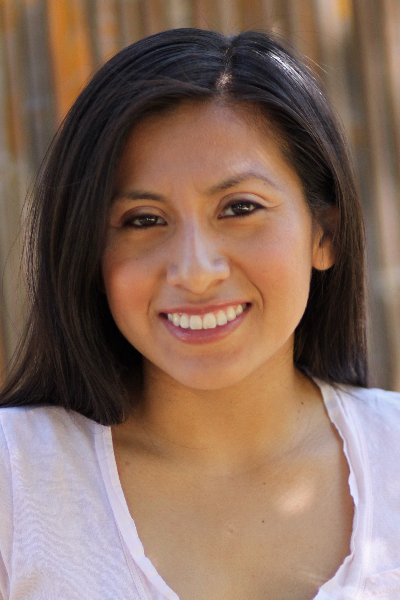Campus News
Candy Martinez
The daughter of Oaxacan migrants, Candy Martinez has found a meaningful way to reconnect with her roots, investigating the ways in which Indigenous communities process and heal grief and trauma.

The daughter of Oaxacan migrants, Candy Martinez has found a meaningful way to reconnect with her roots, investigating the ways in which Indigenous communities process and heal grief and trauma.
Martinez, who has just received her Ph.D. in Latin American and Latino studies (LALS), has spent several months in her ancestral lands learning the Zapotec language of southern Mexico, and exploring unique cultural traditions relating to fright, grief, and profound sadness and loss, especially as related to gender violence, economic inequality, and emigration.
At the center of her dissertation research are la tiricia (doldrums) and susto (fright), illnesses associated in Oaxaca with perpetual sadness and lethargy.
“I call them emotional injuries,” Martinez said. “They could be known as culture-bound syndromes, a term used by cultural anthropologists.”
Different cultures have their own idioms, their own ways of understanding what they are feeling, she said.
“It was really fascinating for me to learn about and know that there are so many words to talk about profound sadness and family separation tied to migration,” Martinez said. “Older generations will use terms in their Indigenous language, but newer generations don’t use these terms as much.”
Martinez has been able to experience community-based healing in addition to expressions of sadness, and to appreciate the importance of gozona (the Zapotec term for mutual aid) and convivenza (coexistence or living together).
“There is a sadness ritual in Mixtec communities,” she said. “Often it consists of going to the river, bringing wildflowers and putting the petals in the water, and letting go of one’s sadness. Basically the idea is that you talk to the elements, tell them your sadness, and drop petals like you are making an offering, but it is also a type of mourning that involves letting go.”
Though there are also psychologists in multiple rural Oaxacan towns, Martinez said traditions have greater appeal for some residents.
“According to the psychologists of state-funded clinics that I interviewed, there is a low probability that their patients will complete their therapeutic sessions,” Martinez said. “Often, people attend three appointments and stop.”
To complete her dissertation project, Martinez interviewed 65 Mixtec and Zapotec leaders, healers, doctors, and psychologists and participated in 12 limpias (spiritual cleanses) and five temazcal rituals (steam baths).
Now the wider academic world is taking notice. In 2023, Martinez will head for Poughkeepsie, New York, where she has accepted a ladder-track faculty job at Vassar College, a prestigious liberal arts college.
Martinez will be the inaugural assistant professor in Latin American and Latinx studies at Vassar College, where she will focus on race, injustice, and immigration.
Before she heads off to the East Coast, she will spend the 2022–23 academic year as a University of California President’s Postdoctoral fellow at UCLA with the sponsorship of David Delgado-Shorter, professor of world arts and cultures/dance.
Professor Catherine Ramírez, chair of LALS, praised Martinez for her innovative dissertation.
“Linking Indigenous, Latin American, Native American, Latinx, gender, cultural, and migration studies, her dissertation promises to make a valuable contribution to our understandings of the relationship among social forces, trauma, healing, tradition, and the dynamism and resilience of Indigenous communities in the Americas,” Ramírez said.
Ramírez also highlighted the many awards Martinez has received to support her work, including the highly competitive Fulbright-García Robles grant and an Andrew W. Mellon Native American Scholars Initiative Fellowship at the American Philosophical Society.
“Candy is a true UCSC success story,” Ramírez said.